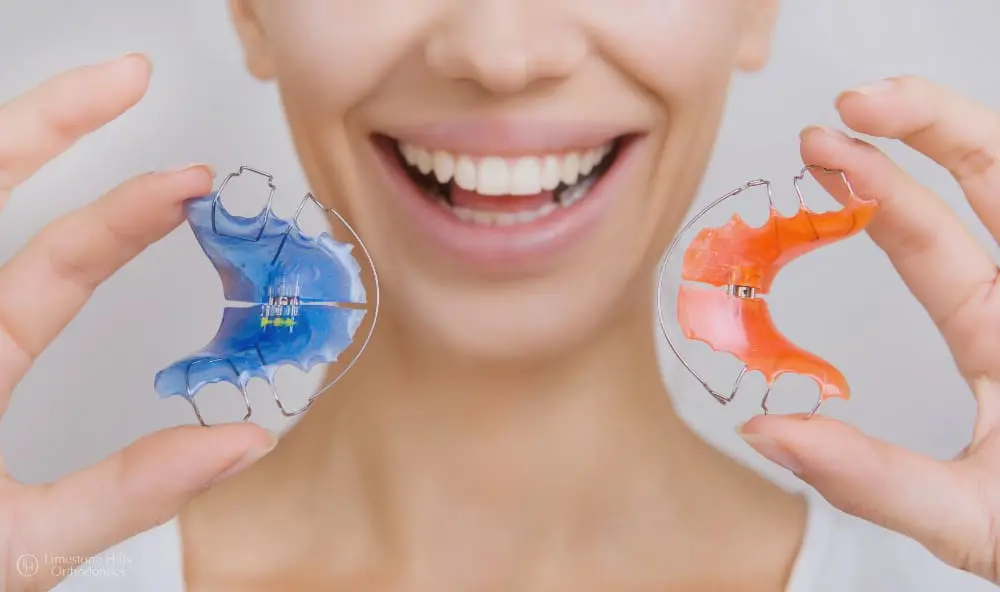After braces, maintaining your perfect smile requires commitment, and that’s where a retainer comes in. The importance of wearing a retainer cannot be overstated—it ensures that all the hard work of straightening your teeth doesn’t go to waste. Without it, your teeth may gradually shift back to their original positions. A retainer helps lock in your progress, supports bite alignment, and promotes long-term oral health. By wearing it as instructed, you can preserve your beautifully aligned smile and enjoy lasting confidence for years to come.

The Importance of Wearing a Retainer in Orthodontic Treatment
Preserving Results Post-Braces
Once braces are removed, teeth can slowly move back to their original positions. Retainers stop this from happening. They hold your teeth in place and ensure they stay correctly aligned. Wearing a retainer regularly means all the hard work from braces won’t be wasted.
Teeth shifting back can happen naturally over time, especially in the first year after treatment. Your retainer is your best defense against this. It helps make sure your smile stays straight and aligned for the long term.
Preventing Tooth Shift
Retainers are crucial because they prevent teeth from sliding back into old positions. Orthodontists often recommend wearing a retainer every day at first, then transitioning to nighttime use. This gradual change ensures your teeth stay in place without needing braces again.
Types of Retainers
Removable Retainers
Removable retainers are easy to take out. They are convenient for eating, brushing, and flossing. Popular types include:
- Hawley Retainers: Made of metal wires and acrylic, these are durable and adjustable.
- Clear Retainers (Essix): These are plastic retainers that look like Invisalign. They are less noticeable and fit snugly over your teeth.
Removable retainers are a great choice for many people because of their flexibility. However, you must remember to wear them daily to get the best results.
Fixed Retainers
Fixed retainers are attached to the back of your teeth. They are invisible from the front and are perfect for those who might forget to wear a removable retainer. Fixed retainers stay in place and constantly protect your teeth from shifting.
Orthodontists may recommend fixed retainers for people who are more likely to experience tooth movement. They are especially helpful for younger patients or those with major alignment fixes.
Choosing the Right Retainer
The choice between removable and fixed retainers depends on your needs and your lifestyle. Your orthodontist will help you decide what works best for you. In some cases, people use both types for added protection.
Health Benefits of Wearing a Retainer
Oral Health Maintenance
Retainers not only keep your teeth straight but also support good oral health. By keeping teeth aligned, retainers reduce the risk of:
- Gum Disease: Straighter teeth are easier to clean, which keeps your gums healthy.
- Tooth Decay: Proper alignment allows you to brush and floss more effectively.
When teeth are crooked, food can get stuck in hard-to-reach places, leading to plaque buildup. Wearing a retainer ensures your teeth stay aligned and easy to clean.
Supporting Gum and Bone Structure
Aligned teeth help protect the gums and bones that support your teeth. Retainers help ensure these structures stay strong and healthy. They evenly distribute pressure when you chew, which reduces stress on your jaw and gums.
Long-Term Benefits of Retainers
A Lasting Smile
One of the biggest perks of wearing a retainer is having a beautiful smile that lasts. Retainers lock in the results of your orthodontic treatment, giving you straight teeth for life.
Avoiding Future Treatments
Wearing a retainer means you’re less likely to need braces again. Retainers protect all the time, effort, and money you’ve invested in your teeth. Consistent retainer use can save you from future orthodontic costs and treatments.
Common Concerns and Solutions
Challenges in Wearing Retainers
Some people find retainers uncomfortable at first. Others worry about losing or forgetting them. These concerns are normal but easy to manage. Here’s how:
- Discomfort: If your retainer feels tight or odd, give it time. Your mouth will adjust within a few days.
- Cleaning: Don’t forget to clean your retainer daily. Use a soft brush and mild soap to keep it fresh.
- Routine: Create a habit of wearing your retainer, such as putting it in at night before bed.
Fixing and Replacing Retainers
Retainers can break, get lost, or wear out over time. If this happens, see your orthodontist right away to get a replacement. Don’t go too long without wearing one, as your teeth may start to shift.
Regular Check-Ups
Visit your orthodontist regularly to make sure your retainer still fits well and is working correctly. They can adjust or repair it if necessary to keep your treatment on track.

Why Patients Choose Us for Orthodontic Care in Austin, TX
We’re dedicated to creating confident, healthy smiles with top-quality orthodontic care. Here’s what sets our practice apart:
Expert Care from Skilled Orthodontists
Our orthodontists have extensive experience treating alignment and jaw issues, using advanced techniques like reverse pull headgear to achieve the best results.
Personalized Treatment for Every Patient
We customize each treatment plan to ensure our patients receive the care that best suits their unique needs and goals.
Comprehensive Support at Every Stage
From your first consultation to the final adjustment, we’re here to guide you, answer questions, and provide the best care possible.
A Wide Range of Treatment Options
Whether you need traditional braces, Invisalign, or other orthodontic solutions, we offer multiple treatment choices to fit your lifestyle and orthodontic needs.
Contact Us Today!
Come see us in Austin, TX, for a free consultation! During your visit, we’ll assess your teeth, go over your treatment options, and discuss how we can help you achieve a straight, confident smile. Scheduling is simple—give us a call or visit our website to book a time that works for you! Our friendly team is ready to answer your questions and guide you every step of the way.
About the Authors
Dr. Rodrigo Viecilli – Orthodontist in Austin, TX
Frequently Asked Questions
What happens if you don’t wear a retainer?
If you skip wearing your retainer, your teeth might start to shift back to their old positions, which could undo all the hard work you put into achieving that beautiful smile. Over time, without the retainer to keep them in place, your teeth can gradually move, and you might notice changes in your bite or alignment. This can lead to discomfort and may even require additional orthodontic treatment down the line.
How long should you wear your retainer?
Initially, your orthodontist might suggest wearing it full-time for a few months, just to keep those teeth in line. After that, you can usually switch to wearing it only at night. But remember, everyone’s teeth are different, so it’s best to follow your orthodontist’s advice. Keeping your retainer on the regular is key to maintaining that beautiful smile you worked so hard for.
Do you need to wear a retainer forever?
While you might not need to wear it all the time forever, it’s super important to follow your orthodontist’s advice. Typically, after braces, you’ll need to wear your retainer regularly at first, and then you might switch to just wearing it at night. This helps prevent your teeth from shifting back to their old ways.

